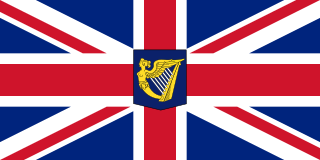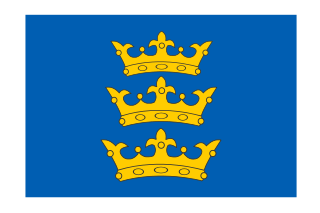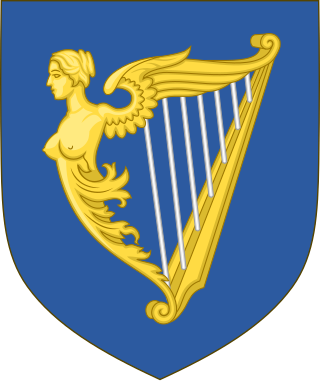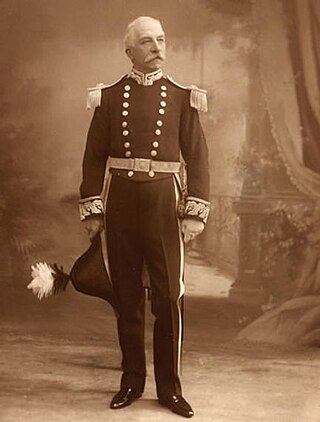This article needs additional citations for verification .(February 2024) |
| |||||
| Centuries: | |||||
|---|---|---|---|---|---|
| Decades: | |||||
| See also: | Other events of 1472 List of years in Ireland | ||||
Events from the year 1472 in Ireland.
This article needs additional citations for verification .(February 2024) |
| |||||
| Centuries: | |||||
|---|---|---|---|---|---|
| Decades: | |||||
| See also: | Other events of 1472 List of years in Ireland | ||||
Events from the year 1472 in Ireland.

Anglo-Irish people denotes an ethnic, social and religious grouping who are mostly the descendants and successors of the English Protestant Ascendancy in Ireland. They mostly belong to the Anglican Church of Ireland, which was the established church of Ireland until 1871, or to a lesser extent one of the English dissenting churches, such as the Methodist church, though some were Roman Catholics. They often defined themselves as simply "British", and less frequently "Anglo-Irish", "Irish" or "English". Many became eminent as administrators in the British Empire and as senior army and naval officers since the Kingdom of England and Great Britain were in a real union with the Kingdom of Ireland for over a century, before politically uniting into the United Kingdom of Great Britain and Ireland in 1801.

Lord Lieutenant of Ireland, or more formally Lieutenant General and General Governor of Ireland, was the title of the chief governor of Ireland from the Williamite Wars of 1690 until the Partition of Ireland in 1922. This spanned the Kingdom of Ireland (1541–1800) and the United Kingdom of Great Britain and Ireland (1801–1922). The office, under its various names, was often more generally known as the Viceroy, and his wife was known as the vicereine. The government of Ireland in practice was usually in the hands of the Lord Deputy up to the 17th century, and later of the Chief Secretary for Ireland.

The Lordship of Ireland, sometimes referred to retrospectively as Anglo-Norman Ireland, was the part of Ireland ruled by the King of England and controlled by loyal Anglo-Norman Lords between 1177 and 1542. The lordship was created following the Anglo-Norman invasion of Ireland in 1169–1171. It was a papal fief, granted to the Plantagenet kings of England by the Holy See, via Laudabiliter. As the Lord of Ireland was also the King of England, he was represented locally by a governor, variously known as the Justiciar, Lieutenant, Lord Lieutenant or Lord Deputy.

The House of Stuart, originally spelled Stewart, was a royal house of Scotland, England, Ireland and later Great Britain. The family name comes from the office of High Steward of Scotland, which had been held by the family progenitor Walter fitz Alan. The name Stewart and variations had become established as a family name by the time of his grandson Walter Stewart. The first monarch of the Stewart line was Robert II, whose male-line descendants were kings and queens in Scotland from 1371, and of England, Ireland and Great Britain from 1603, until 1714. Mary, Queen of Scots, was brought up in France where she adopted the French spelling of the name Stuart.

The Court of King's Bench was one of the senior courts of common law in Ireland. It was a mirror of the Court of King's Bench in England. The Lord Chief Justice was the most senior judge in the court, and the second most senior Irish judge under English rule and later when Ireland became part of the United Kingdom. Additionally, for a brief period between 1922 and 1924, the Lord Chief Justice of Ireland was the most senior judge in the Irish Free State.

The Chief Secretary for Ireland was a key political office in the British administration in Ireland. Nominally subordinate to the Lord Lieutenant, and officially the "Chief Secretary to the Lord Lieutenant", from the early 19th century until the end of British rule he was effectively the government minister with responsibility for governing Ireland, roughly equivalent to the role of a Secretary of State, such as the similar role of Secretary of State for Scotland. Usually it was the Chief Secretary, rather than the Lord Lieutenant, who sat in the British Cabinet. The Chief Secretary was ex officio President of the Local Government Board for Ireland from its creation in 1872.
The Lord High Chancellor of Ireland was the highest judicial office in Ireland until the establishment of the Irish Free State in 1922. From 1721 to the end of 1800, it was also the highest political office of the Irish Parliament: the Chancellor was Speaker of the Irish House of Lords. The Lord Chancellor was also Lord Keeper of the Great Seal of Ireland. In all three respects, the office mirrored the Lord High Chancellor of Great Britain.

In the United Kingdom, a deputy lieutenant is a Crown appointment and one of several deputies to the lord-lieutenant of a lieutenancy area – an English ceremonial county, Welsh preserved county, Scottish lieutenancy area, or Northern Irish county borough or county. Before the creation of the Irish Free State, all Irish counties had deputy lieutenants.
The Lord Deputy was the representative of the monarch and head of the Irish executive under English rule, during the Lordship of Ireland and then the Kingdom of Ireland. He deputised prior to 1523 for the Viceroy of Ireland. The plural form is Lords Deputy.
Events from the year 1210 in Ireland.
Events from the year 1185 in Ireland.
Events from the year 1186 in Ireland.
Events from the year 1382 in Ireland.
Events from the year 1343 in Ireland.
Events from the year 1337 in Ireland.
Events from the year 1695 in Ireland.
Events from the year 1371 in Ireland.
Events from the year 1357 in Ireland.
Events from the year 1404 in Ireland.
Events from the year 1527 in Ireland.